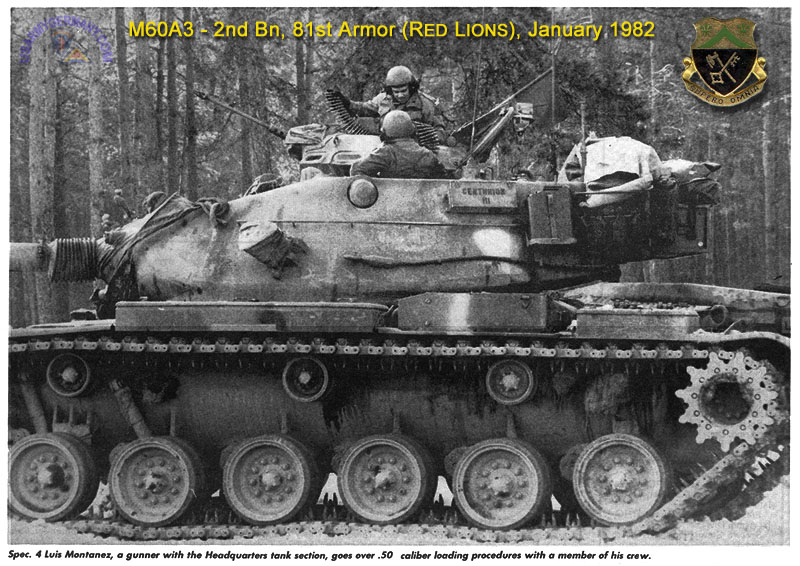Back in the days when the world was caught in the deadly embrace of World War II, a group of brave men, bound by duty and fueled by an unyielding spirit, carved their names into the annals of history. They were the 761st Tank Battalion, a unit whose story of courage under fire continues to inspire generations. This is their tale – a saga of valor, resilience, and brotherhood that triumphed over adversity.
A Battalion Like No Other
The 761st Tank Battalion, also known as the “Black Panthers,” was one of the first African American armored units to see combat in World War II. This unit was formed at a time when racial segregation was still the norm in the United States military. Despite facing discrimination and prejudice, the soldiers of the 761st were determined to prove their worth on the battlefield.
Formation and Training
In 1942, the U.S. Army authorized the formation of the 761st Tank Battalion. The men were trained at Camp Claiborne, Louisiana, and later at Fort Hood, Texas. Their training was rigorous and demanding, designed to prepare them for the brutal realities of armored warfare. The men of the 761st were taught to operate and fight in the M4 Sherman tank, a versatile but vulnerable vehicle that would become synonymous with Allied armored forces during the war.
The Man Behind the Battalion
One cannot speak of the 761st without mentioning their commanding officer, Lieutenant Colonel Paul L. Bates. Bates was a man of integrity and determination who believed in the capabilities of his men. He refused to allow the racial prejudices of the time to undermine the morale and performance of his battalion. His leadership played a crucial role in shaping the 761st into a formidable fighting force.
Into the Fray
The 761st Tank Battalion was deployed to Europe in 1944, joining General George S. Patton’s Third Army. They were thrust into the front lines during the latter stages of the war, participating in some of the most intense and pivotal battles of the European Theater.
The Battle of the Bulge
One of the most significant engagements involving the 761st was the Battle of the Bulge, Germany’s last major offensive on the Western Front. In the freezing Ardennes Forest, the battalion fought bravely against overwhelming odds. The men faced fierce resistance, harsh weather, and treacherous terrain. Their tanks often became bogged down in the snow and mud, yet they pressed on with tenacity and determination.
During this battle, the 761st played a crucial role in breaking the German advance and helping to turn the tide in favor of the Allies. Their actions earned them respect and recognition, proving that they were not only capable soldiers but also indispensable to the war effort.
Liberating Concentration Camps
The 761st Tank Battalion was also instrumental in the liberation of several concentration camps, including Dachau. The sight of the atrocities committed in these camps left an indelible mark on the men. They were driven by a profound sense of justice and humanity, knowing that their fight was not just against an enemy army but against a regime that perpetrated unimaginable horrors.
Crossing the Rhine
In March 1945, the 761st crossed the Rhine River, a crucial milestone in the Allied advance into Germany. The battalion’s tanks spearheaded attacks, breaking through enemy defenses and paving the way for infantry units. Their relentless push into the heart of Germany contributed significantly to the eventual defeat of the Nazi regime.
The Legacy of the 761st Tank Battalion
The bravery and sacrifices of the 761st Tank Battalion did not go unnoticed. They were awarded numerous commendations for their actions during the war. The battalion received the Presidential Unit Citation, and several of its members were decorated for their individual acts of heroism.
Breaking Barriers
The success of the 761st Tank Battalion also had far-reaching implications beyond the battlefield. It challenged the prevailing notions of racial inferiority and helped pave the way for the desegregation of the U.S. military. President Harry S. Truman’s Executive Order 9981, issued in 1948, mandated the integration of all military forces, a change that was influenced by the exemplary performance of units like the 761st.
Honoring the Heroes
In the years following the war, efforts have been made to ensure that the legacy of the 761st Tank Battalion is remembered and honored. Monuments, documentaries, and books have been dedicated to their story, preserving their memory for future generations. In 1997, the battalion was awarded the prestigious Congressional Gold Medal, one of the highest civilian honors in the United States.
Reflections on Courage and Brotherhood
The story of the 761st Tank Battalion is more than just a historical account; it is a testament to the power of courage and brotherhood. These men faced not only the dangers of war but also the prejudice of their own countrymen. Yet, they stood firm, united by a common purpose and an unbreakable bond.
Lessons for Today
In today’s world, the lessons of the 761st are more relevant than ever. Their story reminds us that bravery knows no color, and that unity and perseverance can overcome even the most formidable challenges. It serves as an enduring example of how ordinary individuals can achieve extraordinary feats when driven by conviction and camaraderie.
Personal Accounts and Remembrances
The story of the 761st Tank Battalion is enriched by the personal accounts and remembrances of those who served within its ranks. These firsthand testimonies provide a vivid and intimate glimpse into the experiences of the soldiers, highlighting their camaraderie, struggles, and triumphs.
Tales from the Front Lines
One such account is from Sergeant Ruben Rivers, a member of the battalion who was posthumously awarded the Medal of Honor for his extraordinary bravery. Despite being severely wounded, Rivers refused evacuation and continued to lead his platoon in attacks against German forces. His actions exemplified the indomitable spirit of the 761st, and his story is a poignant reminder of the personal sacrifices made by these soldiers.
Another compelling story is that of Lieutenant Johnnie Stevens, who recounted the harsh realities of combat and the resilience required to overcome them. Stevens spoke of the brotherhood that formed among the men, a bond forged in the crucible of war that transcended the racial barriers of their time. His recollections provide valuable insights into the daily life of a tanker in the 761st.
Stories of Support and Solidarity
The 761st Tank Battalion was not just supported by its own members but also by the communities they represented. African American communities across the United States took immense pride in the accomplishments of the battalion, seeing them as a beacon of hope and progress. Letters, care packages, and words of encouragement were sent from home, bolstering the spirits of the men on the front lines.
The Women Behind the Scenes
While the focus often remains on the men who fought, the contributions of women in supporting roles should not be overlooked. Women such as Lt. Charity Adams Earley, one of the highest-ranking African American women in the U.S. Army during WWII, provided crucial support and leadership. Though not a member of the 761st, her work with the Women’s Army Corps (WAC) highlighted the vital roles women played in the war effort, ensuring the success of units like the 761st.
Commemorating the Heroes
In recent years, various efforts have been made to ensure that the legacy of the 761st Tank Battalion is not forgotten. These include memorials, educational programs, and public recognition ceremonies that honor their contributions and educate new generations about their pivotal role in history.
Memorials and Monuments
Several memorials have been established to honor the 761st Tank Battalion. The National WWII Museum in New Orleans features exhibits that highlight the battalion’s contributions. Additionally, local memorials in places like Fort Hood, Texas, where the unit trained, serve as permanent reminders of their bravery and sacrifice.
Educational Initiatives
Educational programs and documentaries have been developed to tell the story of the 761st Tank Battalion. These initiatives aim to provide a comprehensive understanding of the battalion’s significance, not just in military history but also in the broader context of civil rights and social progress. Films such as “The Black Panthers: Vanguard of the Revolution” include segments that delve into the history of the battalion, ensuring that their story reaches a wide audience.
Public Recognition
In 1997, the 761st Tank Battalion was awarded the Congressional Gold Medal, a testament to their valor and the significant impact they had during WWII. This recognition, albeit delayed, was a critical step in acknowledging their contributions and correcting historical oversights. Public ceremonies and awards continue to celebrate the battalion’s legacy, bringing their story into the spotlight.
The Enduring Legacy of the 761st
The legacy of the 761st Tank Battalion extends far beyond their wartime achievements. Their story is one of resilience, courage, and the relentless pursuit of equality. It serves as a powerful reminder of the sacrifices made by African American soldiers and the vital role they played in shaping the course of history.
A Beacon of Hope and Change
The 761st Tank Battalion’s success helped pave the way for the desegregation of the U.S. military. Their performance under fire demonstrated that bravery and skill know no racial boundaries, challenging deeply ingrained prejudices and fostering a greater push for equality within the armed forces and beyond. Their legacy continues to inspire movements for social justice and equality, resonating with contemporary struggles against discrimination.
Honoring the Past, Inspiring the Future
As we honor the 761st Tank Battalion, it is crucial to remember that their story is not just a chapter in history books but a living legacy that continues to inspire. Their courage under fire serves as a beacon of hope, reminding us of the power of unity and the importance of fighting for what is right, even in the face of seemingly insurmountable odds.



